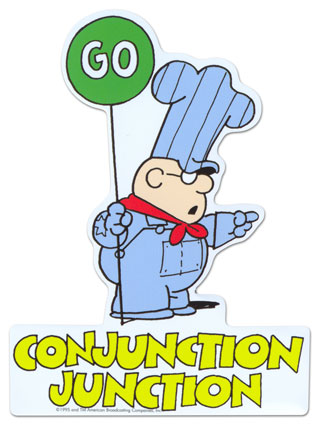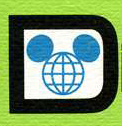Dr. Joseph Barber
I teach an “Applied Animal Behaviour and Welfare” course up at Hunter College (CUNY) in New York, and one of the lectures in this course focuses on the question of whether or not other species have emotions. This is a very important question from an animal welfare perspective, because negative subjective emotional states (like fear, pain, frustration, boredom, loneliness, etc.) can be a potential source of suffering if they result directly from the way that we house or manage these animals in captivity. There are no easy answers to these questions, because emotions by their very nature are subjective states that are unique to the individuals experiencing them. I assume that other humans feel emotional states in a similar way that I do, but it is almost impossible to show that in any objective fashion. We cannot measure the experiences that we feel, even if we can measure changes in blood flow or nerves firing in parts of the brain. What we are left with, then, are some general questions we must ponder. Here are two examples:
- Do other species have the same range of emotional states that we do – and do they have some that we don’t experience?
- How can we try to perceive the environment from the perspectives of these other species when they see, smell, hear, and experience the world in such different ways from us?
Now, I bring up the issue of differing perspectives because in many cases these types of questions are also important when thinking about employers – especially those who have the types of jobs you are looking to apply to. Yes…, I know that employers are humans too, and so they should experience the world in the same way that you do. However, their environment is very different from yours, and environmental factors play a significant role in affecting behavioural responses and emotional reactions.
The idea of trying to figure how employers perceive their environment, and how they respond to the application materials you send to them in their environments, is actually quite a crucial step in the job application and interview process. So, let’s look at the questions I listed above from a job perspective.
1) Do employers have the same range of emotional states that you do – and do they have some that you don’t experience?
 In general terms, the same things that would annoy you will annoy employers. If they ask for a resume, and you send them a 10-page CV instead, they will find that annoying. If they ask for a writing sample and you don’t send one, then that too will cause irritation. I don’t think there are studies that look at this, but I feel sure that chronic irritation will inhibit open-mindedness about your potential as a candidate.
In general terms, the same things that would annoy you will annoy employers. If they ask for a resume, and you send them a 10-page CV instead, they will find that annoying. If they ask for a writing sample and you don’t send one, then that too will cause irritation. I don’t think there are studies that look at this, but I feel sure that chronic irritation will inhibit open-mindedness about your potential as a candidate.
While employers probably don’t experience employer-specific emotions that you don’t have, they will generally not feel the same extremes of fear, desperation, or worry in the same way that some job candidates may. After all, they are not the ones being judged, and the people at these institutions and organizations already have jobs. It is important not to let the “smell of fear” permeate into your application materials or your interview answers. It can happen quite subtly, with an innocent-enough sounding “although I don’t have all the experience you are asking for, I do have…” statement in a cover letter. Don’t dwell on the negatives. Let the spring-filled scent of optimism waft from your letter instead. One easy way to do this is to simply remove the first part of the sentence I used as an example above, and start with what you can do, and what you will offer that will be make you an ideal candidate. Focus on the positives, and ignore (as much as possible) the negatives so that you present a confident aura.
2) How can you try to perceive the environment from the perspectives of employers when they see, smell, hear, and experience the world in such different ways from you?
The first thing to realize is that employers do see the world differently than you do. Your priorities might be to find a job for some of the following reasons: to have enough money to eat and stay warm, to get good health insurance, to be able to work with an interesting group of colleagues, to continued being paid to do the research you love doing, and so on. There are many reasons out there, and each of us will have some unique ones. Employers may be much less interested in your reasons, and much more focused on their reasons for advertizing the job – and the main one usually always boils down to the fact that they need someone to get the job done effectively, whether that is teaching courses, working with clients, developing new protein sequencing pathways, or managing programs. They don’t care what you will spend your salary on, but they do care about whether you are going to be a good investment.
To be convincing to an employer, you need to have a good answer to the question “why do you want this position?” that puts less priority on what you might get out of it, and more on what you can offer them. Focus on their needs first, and it should become obvious to them that you want the job because a) you have the abilities to do it; and b) something from your past experiences has shown you doing something similar, doing it effectively, and enjoying doing it.
If you spend too much time telling an employer how excited you are by the possibility of working for such an impressive an organization as they obviously are, then you are missing out on the chance to highlight the skills you bring to actually get the job done effectively. The senses of employers are keyed into abilities, experiences, and knowledge that will help them build capacity within their organizations. Academic experiences are important, but can often represent passive experiences (a lot of sitting in a room being talked at), and so you will need to talk about your academic credentials and relevant non-academic experiences in as active terms as possible. So rather than, “My academic experiences have given me…”, which is passive, consider something like “I actively sought out opportunities to study X subject with X professor so that I could connect X concept with X reality, and I have used this knowledge in X situation to help me X” (where the concepts and realities mentioned in this case were in some way relevant to the job, and where the outcome highlights how effective your knowledge and skills truly are). Employers are looking for patterns: if you have used a skill successfully in the past, then you will be likely to do so again in the future. You need to find a way to show them how effective you have been – and this will always be more interesting than just telling them that you have been effective.
But the real question is “how” do you see the world from the employer’s perspective. The easiest way is to read the job advert really, really, carefully. This is where employers layout what they need to get done, and the type of skills they believe are necessary to do so. If your cover letter, resume, or interview answers are not addressing these points, then you need to spend some more time figuring out how to see the world from the employer’s perspective. Remember, try to talk about your experiences in the language that the employer uses. Another approach is to speak with people from the types of organizations you want to work at (and Alumni are often a good starting point for this type of outreach) to learn about what are important trends you should be aware of, what skills are valued on a day-to-day basis, and what experiences you have had that might be good to focus on as illustrations of your effectiveness. Ultimately, you should be able to put yourself in the shoes of the person who will be reading your cover letter and CV/resume, and who will be listening to your answers in the interview, because this will help you to tailor what you say and speak most effectively to their needs and interests.
 When you make it easy for employers to see how your experiences make you an ideal candidate to get the job done that they need to be done, then you will make them happy. It is probable that happy employers will more likely see you as their preferred candidate. So yes, employers do have emotions, and you will need to make sure that you give some thought to how you can keep their subjective states as positive as possible.
When you make it easy for employers to see how your experiences make you an ideal candidate to get the job done that they need to be done, then you will make them happy. It is probable that happy employers will more likely see you as their preferred candidate. So yes, employers do have emotions, and you will need to make sure that you give some thought to how you can keep their subjective states as positive as possible.
Schedule an appointment with us at Career Services and bring your questions about how to tailor what you say to the needs of the employers you want to connect with. We’ll be happy to help you. I can also tell you a thing or two about the emotional world of primates, elephants, sheep, cows, and chickens…, if you think that will help!










